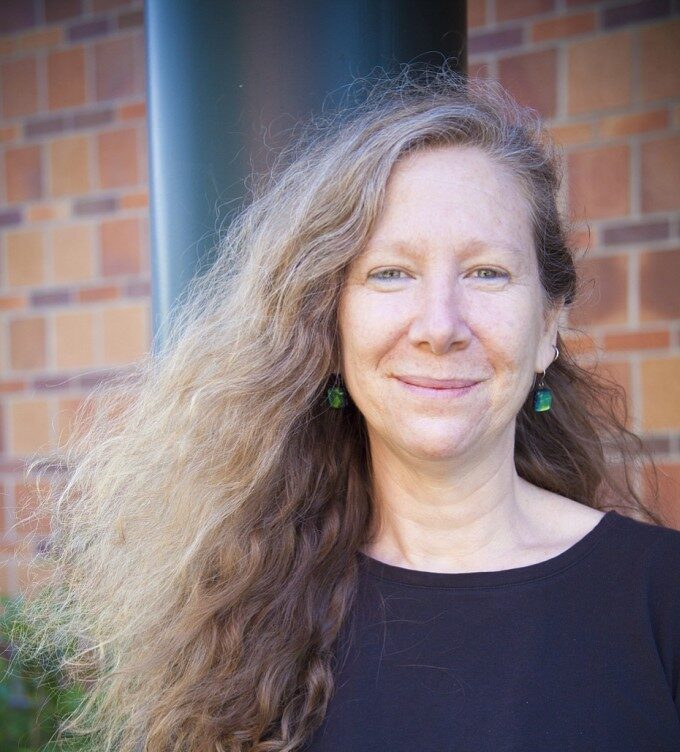According to the National Coalition for the Homeless, the life expectancy of a person experiencing homelessness in America is 50 years, in contrast to the average life expectancy of 70 years. While issues of homelessness continue to remain present throughout the country, specifically in Clark County, one professor questions why community members ignore the possibility of facing this reality themselves.
“We were working on campus at Georgetown [University]. We spent a good part of this summer dodging security guards, trying to look like we weren’t houseless and sleeping in dorms that were being painted.” – Desiree Hellegers
Two years after her father died and being kicked out of her home, English Professor Desiree Hellegers had what she calls a very brief and privileged experience with homelessness alongside her sister.
“We were working on campus at Georgetown [University]. We spent a good part of this summer dodging security guards, trying to look like we weren’t houseless and sleeping in dorms that were being painted,” Hellegers said. “Thankfully, we had jobs at a gym that allowed us to shower there. And I think, if we’d been People of Color, we would have gotten hassled a lot more by security.… But, you know, being white and on a college campus, we are able to more or less blend in.”
When understanding who is affected most by homelessness, Hellegers says racial and gender marginalization are important aspects to consider when confronting the issue. As reported by Clark County’s Council for the Homeless, in 2019, 23% of the overall homeless population identified as People of Color, a trend reflective of income inequality that continues to increase year after year.
While homelessness is an unresolved issue, Hellegers says it remains largely ignored by the middle class. When discussing homelessness, it is often in a quantitative manner, rather than viewed through a human-focused lens. Listening to real-life stories from people living on the streets is one of the main reasons Hellegers became interested in homelessness as a human rights issue.
“Statistics don’t really capture the enormity of the suffering. You have to hear the stories. And so I’m really glad to see that there’s a lot more people having control over their own stories,” Hellegers said.
Additionally, homelessness is something everyone has encountered, whether that be through the passing of a tent on the sidewalk or becoming houseless. Now that the COVID-19 eviction moratorium has officially ended, more people may be subject to the likelihood of homelessness and financial stress.
“I get concerned about our students… the level of stress that they’re having to bear by being exposed every day to seeing other people who are out on the street. So when you’re on that threshold, and you see the way that houseless people are abandoned, despite the really important work that so many nonprofits and mutual aid groups are doing, it’s psychologically stressful for all of us in ways that we don’t think or talk enough about,” Hellegers said.
Some organizations, like the Women’s Housing Equality and Enhancement League in Seattle and Dignity Village in Portland, work with models of democratic governance, or self-governance, to provide self-managed shelters without depending on the in- fluence of local authorities.
“Democratic governance works so that you have some say over the circumstances of your own housing, and you’re living in a situation that respects the autonomy and the dignity of houseless people… tent cities are a really important model for dealing with houselessness. They promote self-governance and autonomy and dignity in ways that shelters sometimes don’t,” Hellegers said.
As for future proposals Clark County has set in place, on Dec. 15, Governor Jay Inslee announced an $815 million plan, allocating funds to fight homelessness in Washington state. A portion of the budget will go towards expanding facilities like tiny homes, enhanced shelters and permanent affordable housing. Additionally, a sum of the budget will go towards resources for cleanup programs, preventing evictions, expanding treatment beds for chronic behavioral health conditions and more.
There is certainly some hope to be had in the state’s spending plan to support people who are homeless. However, as those plans unfold and actions occur throughout the year, Hellegers urges people to get involved by volunteering, donating and paying attention to what government officials are doing to support houseless people who are a part of our community.

Arabelle is a senior studying English at WSU Vancouver.
